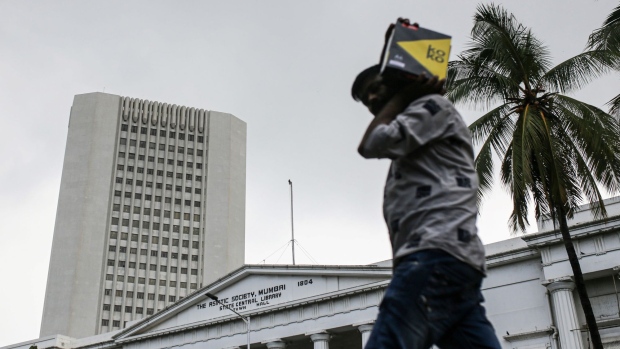Feb 7, 2023
India Raises Rate by a Quarter Point, Retains Tightening Bias
, Bloomberg News

(Bloomberg) -- India’s central bank slowed the pace of interest-rate increases while keeping the door open for further policy tightening to curb core inflation, an approach that aligns with the thinking of peers in the US and Australia.
The Reserve Bank of India’s six-member Monetary Policy Committee voted 4-2 to raise the benchmark repurchase rate by a widely expected quarter-point to 6.50%, slowing from the 35 basis-point hike in December. The panel also retained its stance of withdrawing accommodation that it adopted early last year.
“We need to see a decisive moderation in inflation,” Governor Shaktikanta Das said after the decision that showed growing dissent to monetary tightening. The decision to keep the stance, also off a 4-2 voting, is warranted to keep inflation expectations anchored and break the persistence of core inflation, he said.
Bonds fell, with the yield on benchmark 10-year bonds rising by as much as four basis points to 7.36%, as the policy belied expectations of a dovish pivot. The rupee rose against the dollar before trading flat, and stocks held gains.
“With the stance continuing to focus on withdrawal of accommodation, the window remains open for further rate hikes if inflation exceeds the MPC’s projections,” Aditi Nayar, chief economist at ICRA Ltd. “We expect the MPC to remain vigilant and data dependent in FY2024.”
While headline consumer prices have returned to the central bank’s 2%-6% target band, core inflation, the measure that strips out volatile food and fuel costs, has stayed above 6% for the past 15 months. The downshift to a quarter-point move allows the RBI room to study the impact of past increases, and raise when necessary, in line with the approach followed by peers.
Federal Reserve Chair Jerome Powell reiterated his message on the need for higher interest rates, even as a resurgent inflation may keep central banks in Asia from pausing rate hikes just yet. The Reserve Bank of Australia this week raised by 25 basis points and said further tightening is needed to rein in core inflation. The Philippines saw consumer prices accelerate to a fresh 14-year high, while Thailand warned that inflationary risks have increased.
“RBI’s commentary is quite similar to US Fed commentary - sticky inflation and growth,” Sandeep Yadav, head of fixed income at DSP Mutual Fund. “Like the US Fed, RBI too is not signaling any pause. We believe that another rate hike is a strong possibility - and domestic policy is still intertwined with the global central banks’ policies.”
With India set to grow at the quickest pace among major economies in the year beginning April, and the government resolute on fiscal consolidation, the RBI can afford to stay focused on its primary mandate of price stability.
The central bank forecast inflation to average 5.3% in the year beginning April, from a revised 6.5% in the current fiscal year. It sees economic growth at 6.4% in the same period, against 6.8% seen in current year ending March.
The reduction in the size of the rate hike provides an opportunity to evaluate the effects of the actions taken so far on the inflation outlook and on the economy at large, Das said, adding that the “global economic outlook does not look as grim now as it was a while ago,” with inflation remaining a worry for some major economies, and also for India.
“It is imperative to remain alert on inflation so as to ensure that it remains within the tolerance band and progressively aligns with the target,” RBI said in the statement.
Still, economists expect the central bank is closer to the end of its tightening cycle, given inflation-adjusted real interest rates are already in positive territory.
“As inflation begins to moderate, we expect real rates to reach near pre-pandemic” level soon, said Upasna Bhardwaj of Kotak Mahindra Bank Ltd. “The need for incremental rate hikes remain limited,” she said, while penciling in a prolonged pause on rates with a likely shift in stance in April.
Here are other key takeaways from Das’s address:
- Proposes to allow lending and borrowing of Indian government bonds
- To issue guidelines on green deposits, climate financing risks
- To start allowing foreigners access to India’s Unified Payments Interface, or digital transactions
--With assistance from Vrishti Beniwal, Tomoko Sato, Shwetha Sunil, Jeanette Rodrigues, Adrija Chatterjee, Ronojoy Mazumdar, Kartik Goyal, Subhadip Sircar and Anirban Nag.
(Updates with governor’s comments from the third paragraph.)
©2023 Bloomberg L.P.





